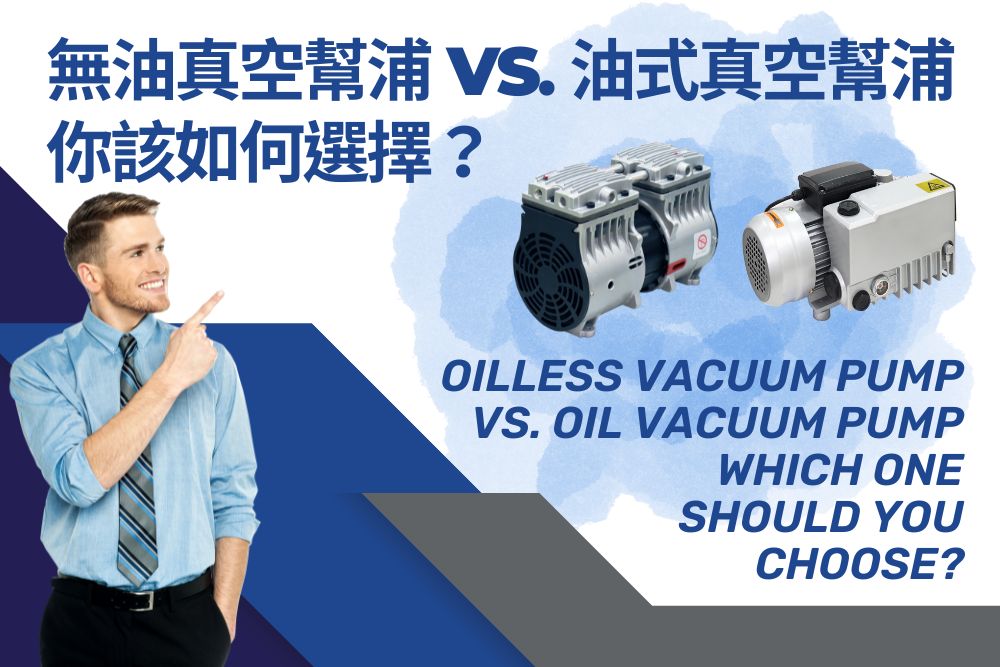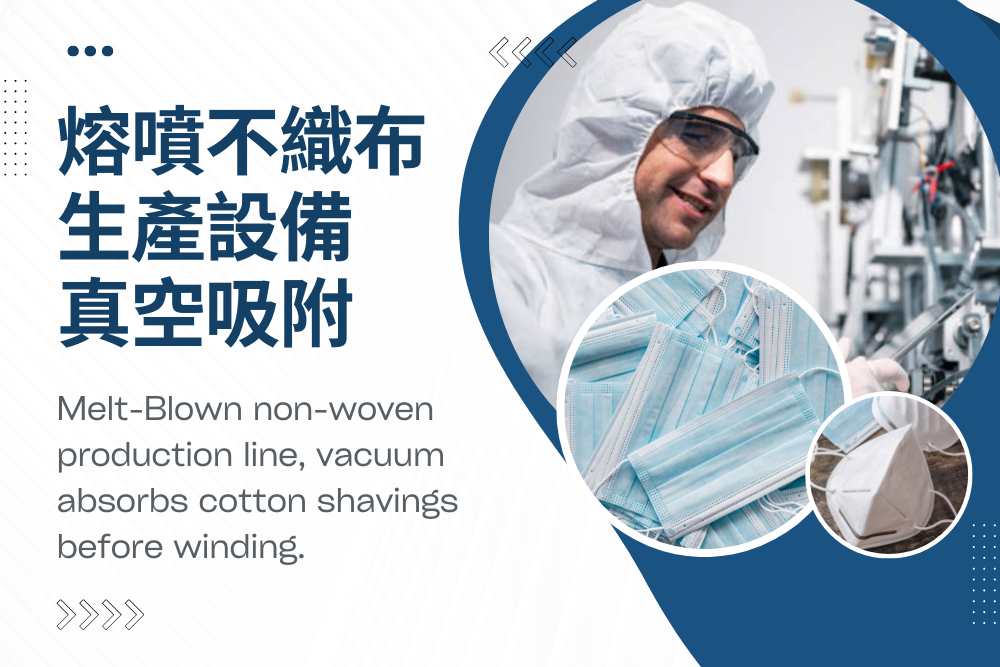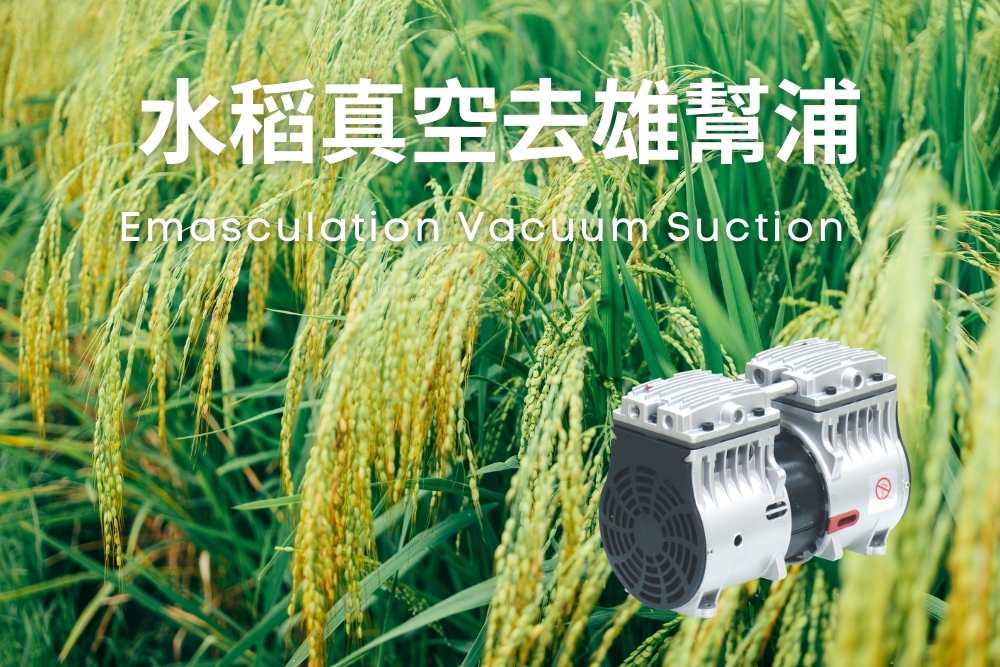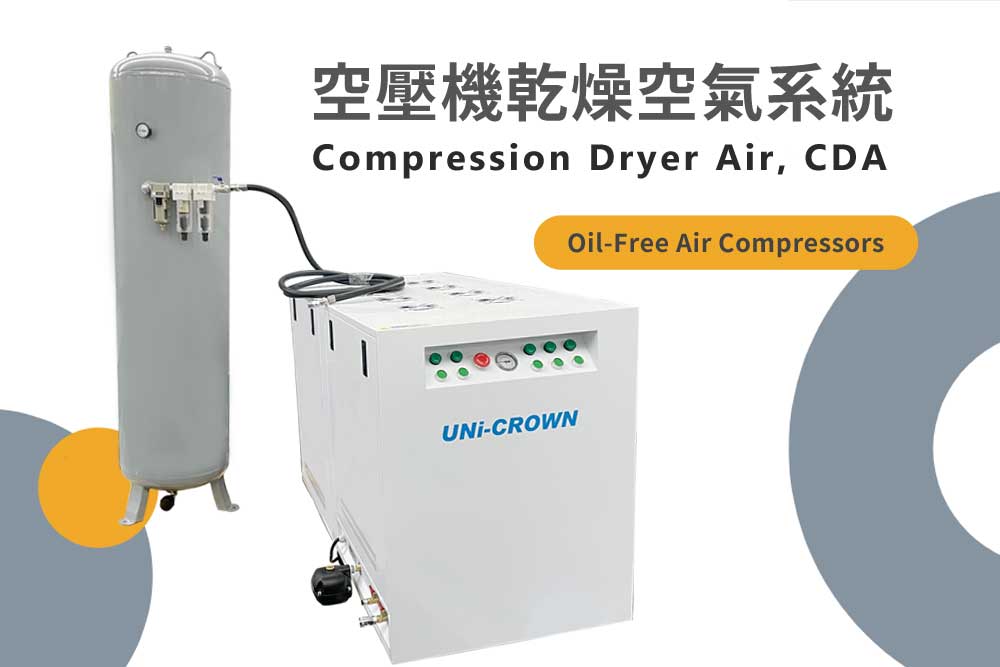Oil-Free Vacuum Pump vs. Oil-Type Vacuum Pump: Which One Should You Choose?
When choosing a vacuum pump, there are two main types to be considering: oil-free vacuum pumps and oil-type vacuum pumps. Oil-free vacuum pumps and oil-sealed vacuum pumps are machines that generate a vacuum, but their working principles and usage scenarios are different. Each has advantages and disadvantages, and choosing the right one depends on your specific needs and requirements.
Oil-Free Vacuum Pump:
An oil-free vacuum pump is a type of vacuum pump that does not require oil for lubrication, so they do not produce oil pollution and odors, nor do they need to replace oil regularly. Instead, it uses other materials, such as Teflon or polymers, to reduce friction and wear between moving parts. This makes oil-free vacuum pumps more suitable for applications that require high cleanliness, such as semiconductor manufacturing, medical equipment, and laboratories. Additionally, because oil-free vacuum pumps do not require regular oil changes, their maintenance costs are lower.
One of the main advantages of oil-free vacuum pumps is that they are cleaner and more environmentally friendly since they do not produce oil mist or require oil changes. They are also less likely to leak oil and contaminate the surrounding environment. Additionally, they are generally smaller and lighter than oil-type vacuum pumps, making them more portable and easier to install.
However, oil-free vacuum pumps also have their drawbacks. First, because it does not use lubricating oil, it is prone to wear and failure during high loads and high temperatures. Additionally, because the operating parts of oil-free vacuum pumps need to be cleaned and maintained frequently, their lifespan may be shorter than that of oil-sealed vacuum pumps. Finally, the cost of oil-free vacuum pumps is usually higher than that of oil-sealed vacuum pumps, especially in large applications.
Oil-free vacuum pumps, such as the 7 CFM oil-free vacuum pump is popular for use in automation equipment due to their compact size, low maintenance requirements, and relatively low cost. In automation equipment, vacuum pumps are often used for pick-and-place operations, where they are used to pick up and move small parts or components. A 7 CFM oil-free vacuum pump can provide the necessary vacuum pressure and flow for these operations, while also offering fast response times and high reliability. Additionally, the oil-free design of these pumps means they are less likely to generate contaminants, making them suitable for use in cleanroom or sensitive manufacturing environments. Overall, a 7 CFM oil-free vacuum pump is a versatile and practical choice for many types of automation equipment.
Oil Vacuum Pump:
An oil-sealed vacuum pump is a commonly used type of vacuum pump with the major advantage of being stable, reliable, and having a long lifespan. An oil-type vacuum pump is a type of vacuum pump that uses oil as a lubricant to reduce friction and wear between moving parts. The oil is usually circulated through the pump to provide lubrication, and cooling, and to remove contaminants. Oil-type vacuum pumps are commonly used in industrial applications, such as vacuum packaging, food technology, bottling, and filling machines, the plastics industry, pneumatic conveying, dust extraction systems, the packaging industry, and the woodworking industry.
One of the main advantages of oil-type vacuum pumps is that they are generally more durable and can handle high-pressure and high-temperature applications. Oil-sealed vacuum pumps maintain operation and sealing through lubricating oil, which allows them to maintain stability even when operating under high loads and high temperatures.
However, there are also some disadvantages to using an oil-type vacuum pump. They can be more expensive than oil-free vacuum pumps and may require more frequent oil changes and disposal. Additionally, they can produce oil mist and fumes, which can be harmful to the environment and the health of workers. Oil-sealed vacuum pumps are suitable for general industrial applications, but their use may be limited in applications that require high cleanliness or have strict environmental regulations.
Which One Should You Choose?
When deciding between an oil-free vacuum pump and an oil-type vacuum pump, it is important to consider your specific needs and requirements. Some factors to consider including:
- The type of application: If you are working in a field that requires a clean environment, such as medical or food processing, an oil-free vacuum pump may be the better choice. If you are working in a high-pressure or high-temperature application, an oil-type vacuum pump may be more suitable.
- Maintenance requirements: Oil-free vacuum pumps generally require more frequent maintenance than oil-type vacuum pumps, which may be a consideration for your budget and schedule.
- Environmental impact: Oil-free vacuum pumps are generally more environmentally friendly since they do not produce oil mist or require oil changes. However, they may not be as durable as oil-type vacuum pumps and may require more frequent repairs or replacement.
- Cost: Because lubricating oil needs to be regularly changed and replenished, the maintenance cost of oil-sealed vacuum pumps is higher.
In conclusion, both oil-free and oil-type vacuum pumps have their advantages and disadvantages. oil-free vacuum pumps perform better in highly clean applications, while oil-sealed vacuum pumps are suitable for general industrial applications. By considering factors such as the type of application, maintenance requirements, environmental impact, and cost, you can make an informed decision and choose the vacuum pump that is best for your business.




